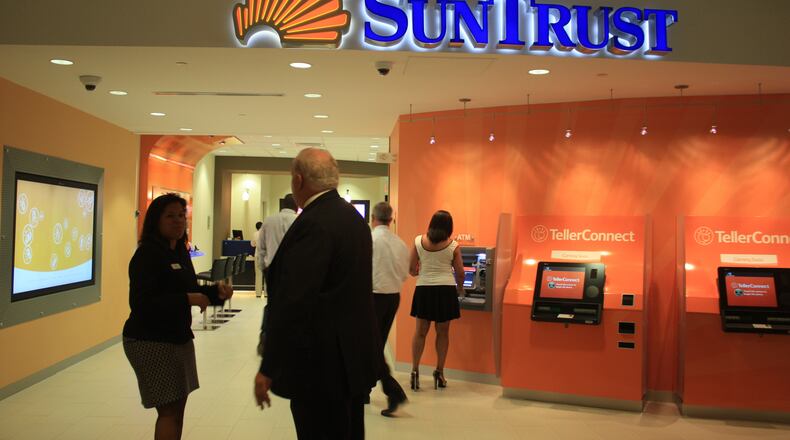Fraud charges against SunTrust Banks are being considered by the U.S. Securities and Exchange Commission over allegations that its investment business steered customers into costly mutual funds when cheaper options were available.
The Atlanta bank said in a filing that the SEC’s enforcement division “made a preliminary determination to recommend that the SEC bring an enforcement action” against SunTrust Investment Services, the bank’s broker-dealer and insurance arm.
The federal probe was disclosed last week in SunTrust’s annual report filed with the SEC.
If found guilty, the bank potentially faces not only fines but the potential loss of some of its investment business income and its fast-track status for issuing new bonds and other securities.
In late 2015, J.P. Morgan paid $267 million to settle SEC charges that it failed to disclose conflicts of interest when it steered customers into its own investment products that were more costly than alternative funds.
Last year, the SEC launched a campaign to investigate whether banks and investment firms were making self-serving investment recommendations to customers.
At the center of the SunTrust investigation is whether the bank’s investment arm bought costly mutual funds on the behalf of clients that charged a type of marketing fee, called 12b-1 fees, rather than recommending cheaper mutual funds that don’t charge such fees.
Often, mutual funds that charge the higher fees pay higher commissions to the companies and brokers that sell them.
Such actions could violate the 77-year-old federal Investment Advisers Act. The law requires money managers registered with the SEC, as SunTrust’s investment unit is, to act in their clients’ best interests.
The U.S. Department of Labor rolled out a similar rule, set to take effect next month, that requires brokers, insurance agents and other investment advisers to act in clients’ best interests when selling or recommending investments in retirement accounts, such as 401(k) accounts.
However, President Trump is seeking to de-rail that new rule by delaying it or repealing it. Last month, he issued an executive order directing the Labor Department to delay implementation of the so-call fiduciary rule, which is set to take effect April 10. This week, the Labor Department proposed delaying it for 60 days.
Meanwhile, SunTrust said in its filing that its investment business, STIS, is “researching the extent to which alternate mutual fund classes existed which did not impose such fees.”
STIS estimates that the fees it has collected add up to “$5 million or less,” the bank said.
However, penalties could be more costly both in dollars and tougher restrictions on SunTrust’s ability to earn fees on investment product sales, and its ability to issue new bonds or other securities to investors.
In its filing, SunTrust said that if STIS admitted or was found guilty of fraud, the bank “could lose ‘well-known seasoned issuer’ status, and STIS’ ability to earn certain investment advisory referral fees may be limited.”
That elite "well-known seasoned issuer" status is one of the SEC's classifications for companies that periodically issue new securities, according to Law360. It allows SunTrust to issue bonds and stocks with simplified, automatic approval by the SEC.
A fraud conviction would revoke that status for three years.
About the Author
Keep Reading
The Latest
Featured


